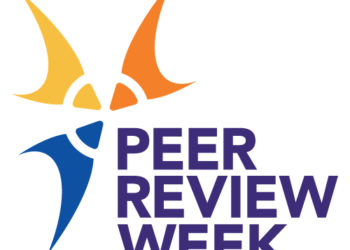
- Image via Wikipedia
Hardly a week goes by without yet another article pillorying the impact factor, decrying its improper use in evaluating journals and scientists, or pointing to evidence that editors are actively manipulating their citation counts by pressuring authors of accepted manuscripts to self-cite their journal.
Given the frequency of publication and emotional investment of its authors, any newcomer to this literature would consider this a new and controversial topic. The fact that this debate has been going on for decades should give some pause. Its vitriolic repetitiveness is getting, well, boring.
“Should editors influence journal impact factors?“ (Learned Publishing, January 2010) takes a new and antagonistic view of the issue. Its author, Frank-Thorsten Krell, is the Curator of Entomology at the Denver Museum of Nature and Science.
The root of the problem, Krell argues, is the assumption that the citation process is an objective act and that accrued citations are therefore an unbiased measure of quality. If we accept this premise, then any manipulation of the citation process is deemed unethical.
And yet the act of citation is a very personal and subjective process. Citations are used for rhetorical purposes; they’re more of a tool to persuade the reader than to cite relevant literature. And many citations listed in a paper are perfunctory — that is, they are not necessary to understand the meaning of paper but serve to acknowledge that other general work has been done in the field. They are symbolic hand-waving.
If we view citations as indicators of attention, rather than quality, Krell argues, we would avoid the ethical implications when editors contact authors of accepted manuscripts with relevant in-journal references. Krell writes:
It is the duty of a responsible editor to increase not only the quality of his/her journal, but also raise the awareness of and the interest in the journal. It would be unfair to authors and disloyal to publishers if an editor did not act in this direction.
In other words, an editor is acting responsibly when interacting with authors in this way.
Krell is not so blunt as to view the role of the editor solely in terms of maximizing citation return by whatever means necessary. He clearly views the intention of the editor as important. Is the editor alerting the author of a recently-published article (or one in-press)? Or is he really attempting to manipulate the author’s choice of citations? Krell views citation manipulation as a clear breach of ethics:
It would be unethical, but not because it increases the impact factor, but because it interferes with the author’s freedom and responsibilities and gives marketing priority over scholarship, respectively […] However, it is not unethical, and is even a matter of caretaking for their own journal and for their authors, if editors bring to authors’ attention papers from their own journal.
Anurag Agrawal, professor of Ecology and Evolutionary Biology at Cornell University, does not accept this distinction. In a 2005 letter to Trends in Ecology & Evolution, Agrawal feels that editors wield too much power in the publication process and that even subtle suggestions may be perceived as overt influence peddling:
A gentle nudge by an editor to cite additional papers if relevant is all too easy to be uncritically accepted by most authors who are simply overjoyed with the news that their paper has been accepted. To maintain the integrity of objective scientific research, this questionable policy that essentially results in the ‘businessification’ of science must be stopped. Publishers should be embarrassed and authors should not comply
Should editors contact authors to suggest in-house papers?
Do your editors do this?
Let us know what you think.
Discussion
8 Thoughts on "Should Editors Influence Journal Impact Factors?"
It is legitimate for an Editor to suggest a reference the author has not cited if that article is relevant to the issue being discussed and would provide the reader with pertinent information or clarify something within the article. This should never be a demand, nor should it be done purely because that reference is to that Editor’s journal.
In practice, of course, it may not always be determine exactly what the Editor’s real motive is, especially when the reference being suggested in, in fact, from that Editor’s journal.
Editors can suggest what they like, but authors should take responsibility for their own work at the end of the day.
Personally I wouldn’t submit research papers to journals that had a policy of promoting self-citation. If your work is of a higher enough calibre it can easily be submitted elsewhere.
The impact-factor effect of “A gentle nudge by an editor to cite additional papers” etc. is surely modest in comparison with “appalling” and “clear-cut” cases of intentionally gaming the system. This really does happen, add it makes junk journals rate better than good ones.
![Reblog this post [with Zemanta]](http://img.zemanta.com/reblog_e.png?x-id=af178402-176f-4219-8a62-06050a280537)


